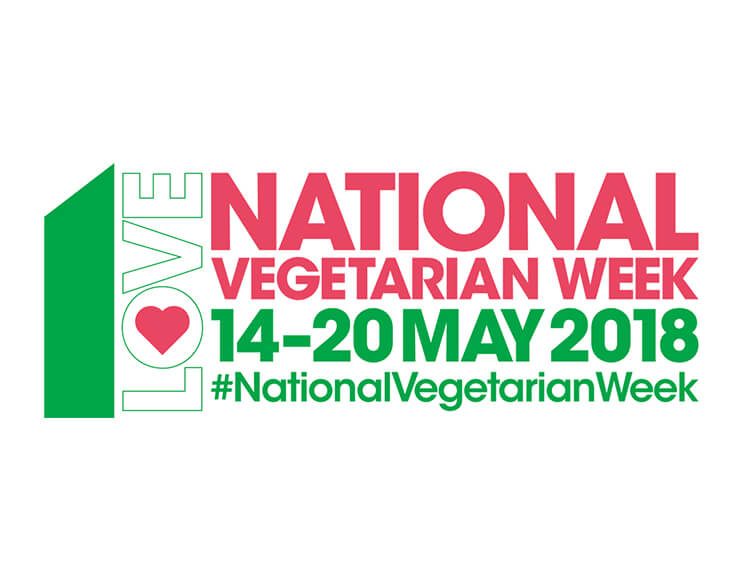It will come as no surprise to anyone in the food industry that veggie and vegan food is in high demand. Not only that, but the number of consumers choosing to reduce their meat intake is increasing at a great rate. So how do you make National Vegetarian Week 2018 (14 – 20 May) work for you?
Sam Platt, manager of the Vegetarian Society Cookery School, has put together some handy tips to make it easier for you to create saleable and on-trend veggie and vegan options.
Sam’s ten top tips:
- Get creative. Write the veggie dishes first. So many chefs leave the veggie options till last when writing a menu, which can make it feel like a chore! If you’re a meat-eater it might take a bit more thought and ingenuity to design veggie and vegan dishes, don’t leave it until the creative juices run dry.
- Structure. Think about structuring veggie/vegan options in just the same way you structure meat dishes. Now I know this sounds counter-intuitive but we all need the same bases covered. Where’s the protein? Where are the carbs? Where are the vegetables? Where’s the flavour?!
- Enough with the cheese already! Not every veggie dish needs cheese. If cheese is an ingredient in your veggie starters, avoid it in your main courses and vice versa. Try other ways to pop a bit of protein in a dish; pulses and grains, tofu, nuts, seeds, and tempeh all have great protein content – and are super tasty too.
- Experiment with flavours and cooking methods. Don’t be scared to combine lots of different vegetables in one dish. Cook them in many ways too; mash them, roast them, marinade them, steam them, fry them, sous vide them!
- Fill us up! A plain green salad can be tasty but on its own it won’t make for a great dining experience. Make sure your veggie/vegan options are just as enjoyable and satisfying as the non-veggie dishes.
- Be aware of non-veggie ‘hidden ingredients’. There are ingredients that may appear to be veggie but in fact aren’t. Worcestershire sauce (which contains anchovies), and certain beers and wines are common pitfalls – but veggie options are available. Many French and Italian cheeses are not vegetarian e.g. Parmesan, but you can easily find suitable alternatives. Make sure you label vegetarian cheese as veggie on your menus.
- Clearly label. Be sure veggie/vegan options, even desserts, are clearly marked on your menu. It’ll speed up the order process if veggies/vegans don’t have to ask if dishes are suitable for them.
- Educate your staff. It is so important your customers can access the correct information. Ensure staff know the basics of vegetarian and vegan diets and which items on your menu are suitable or adaptable. The Vegetarian Society Cookery School (www.vegsoccookeryschool.org) has courses running throughout the year, including a Professional Chefs’ Diploma, vegan baking days and bespoke training.
- Online training. Take advantage of the Vegetarian Society’s innovative online training, designed especially for caterers, to help them make veggies and vegans their biggest fans. Call 0161 925 2000 for details.
- Free resources and publicity. Don’t forget that caterers can order free resources via our National Vegetarian Week 2018 (14-20 May) website (www.nationalvegetarianweek.org). Share your favourite vegetarian recipes, events or offers on social media using #NationalVegetarianWeek.
Remember it is not unusual for the veggies in a group of family or friends to have a big say in where the whole group will choose to eat. By offering better veggie/vegan choice on menus you are not only making more people happy more of the time but increasing the likelihood of return custom.
The Vegetarian Society is a charity that is passionate about veggie food! They want everyone to know how varied and delicious vegetarian dishes are – and how easy it is to enjoy a veggie lifestyle.
Ends
Notes to editors:
- For info, images, or interviews please contact su@vegsoc.org or call 0161 925 2012
- National Vegetarian Week 2017 saw events happening across the country. There was a school sandwich competition, a film about veggie BBQs, urban community chefs rustled up veggie food to share, hundreds of elderly people received special homemade snack boxes featuring baked treats made and distributed by 16 to 25 year old volunteers. These were just some of the 100+ events put on by community groups, schools, universities, colleges, Brownies, individuals and others – all of which were awarded grants to help their communities get stuck in to National Vegetarian Week. The grants awarded by the Vegetarian Society ranged from £30 to £2,000, helping to make possible both large-scale and smaller more intimate National Vegetarian Week celebrations happen all across the UK.
- In February Kantar published research which said vegetarian and vegan meals are on the rise. According to the report, a quarter of all evening meals eaten in the UK are vegetarian or vegan.

